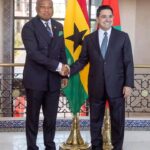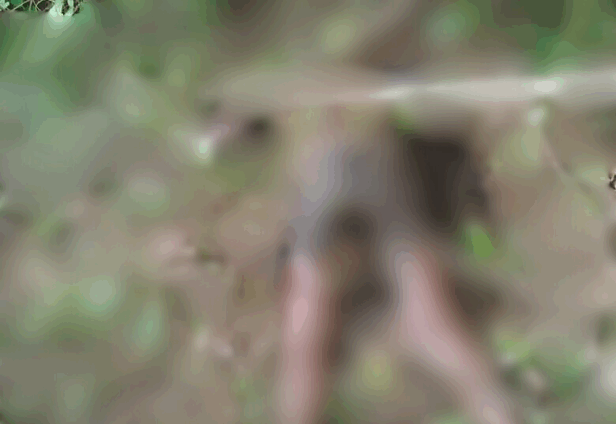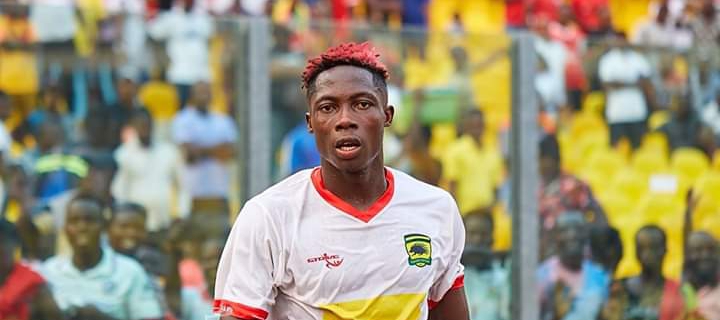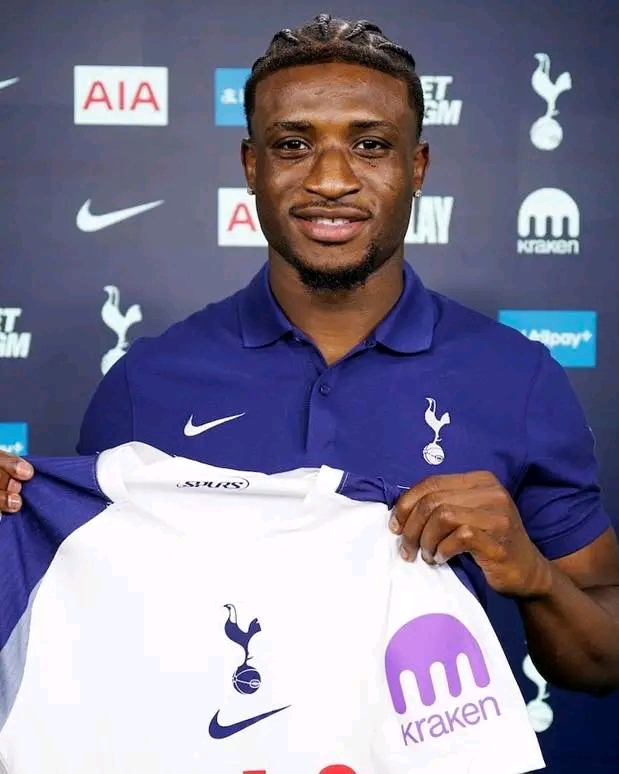Ghana’s Parliament has stepped up diplomatic engagement with Morocco, as Alfred Okoe Vanderpuije, Chair of Ghana’s Foreign Affairs Committee, met with Morocco’s Foreign Minister, Nasser Bourita, in Rabat to reaffirm growing ties between the two countries, Dailypost.com.gh can exclusively reveal.
The visit, which featured the Ghanaian delegation’s courtesy call at the Moroccan Ministry of Foreign Affairs on Monday, was also attended by Ghana’s Ambassador to Morocco, Charity Gbedawo. It is part of a broader effort by both governments to deepen parliamentary and diplomatic cooperation across Africa.
Vanderpuije praised the “solid and enduring” relationship between Accra and Rabat, which dates back to the formal establishment of diplomatic ties in 1961. He stressed the importance of building on these foundations through increased parliamentary engagement and more structured collaboration between the legislative institutions of both nations.
Speaking to the press after the meeting, the Ghanaian MP described his discussions with Bourita as “fruitful,” noting that the talks focused on advancing mutual interests and reaffirming shared African ideals. He emphasized that Ghana and Morocco—both leading voices in West and North Africa respectively—have much to gain from stronger bilateral and regional partnerships.
The working visit is part of a multi-day mission by the Ghanaian parliamentary delegation to Morocco. It comes at a time when both nations are positioning themselves as gateways to their respective sub-regions, with Ghana strengthening its West African Economic Zone credentials and Morocco expanding influence across Francophone Africa.
The Moroccan government, under King Mohammed VI, has been pursuing an increasingly proactive African diplomacy agenda. Rabat’s reintegration into the African Union in 2017 marked a turning point in its continental relations, and Morocco has since built economic and political bridges with numerous African countries, including Ghana.
For Ghana, the visit signals Accra’s intention to cement itself as a continental policy actor—leveraging both historical alliances and modern development diplomacy. The visit by Vanderpuije underscores a shift from ceremonial diplomacy to issue-based, interest-driven engagement, particularly around trade, education, and infrastructure development.
“This is not just about handshakes and photo ops,” said one diplomatic source in Rabat. “It’s about building long-term frameworks where Ghana and Morocco can co-develop initiatives in areas like energy, agriculture, and parliamentary support mechanisms.”
As Ghana expands its foreign policy footprint under the new administration, the country is looking toward partners that can offer technical expertise, infrastructure financing, and shared development models. Morocco, with its strong state institutions and investments in intra-African cooperation, has become a natural partner.
In recent years, Moroccan firms have increased their investment footprint in Ghana, particularly in banking, construction, and renewable energy. Ghana, in turn, offers Morocco a reliable political partner in West Africa and a gateway to Anglophone markets.
During his stay, Vanderpuije and his delegation are expected to hold further meetings with senior Moroccan officials, focusing on trade relations, youth exchange programs, and parliamentary diplomacy. Both sides have expressed optimism about formalizing agreements that could pave the way for increased parliamentary cooperation, technical support, and reciprocal visits.













